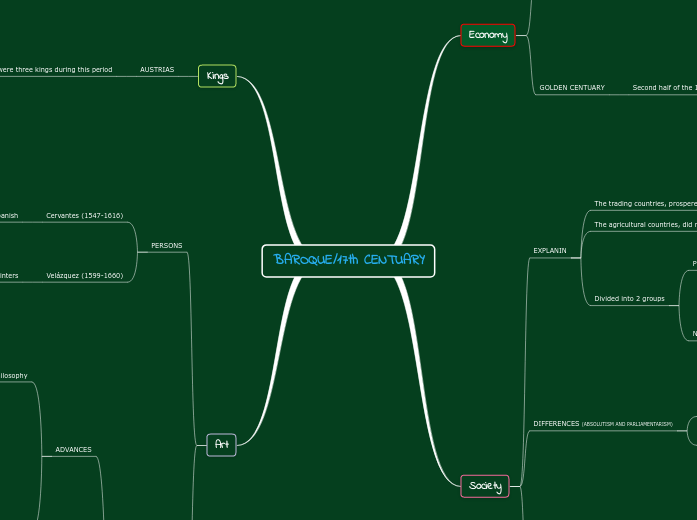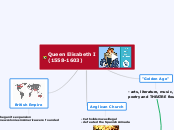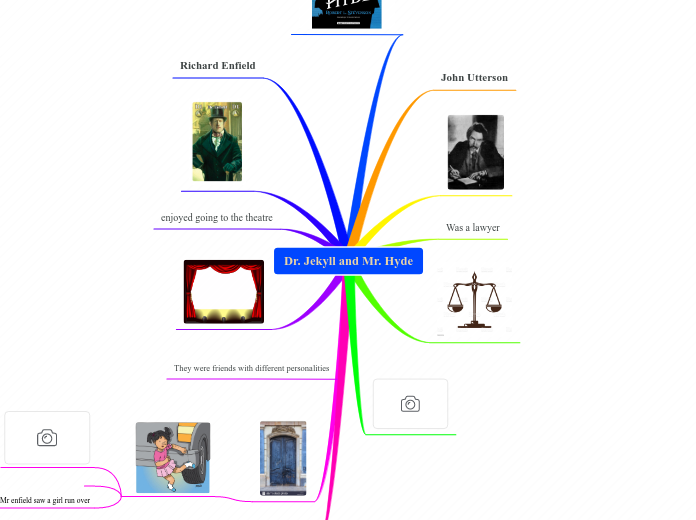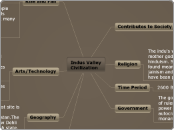BAROQUE/17th CENTUARY
This ancient civilization of Northeastern Africa is one of the most spectacular of the ancient world. Find out more about the people of Ancient Egypt, their gods and goddesses, magical land, and daily life.
Art
Egyptian Art has a major role in conveying the essential traits of this great civilization.
The Egyptian art portrays best what this civilization valued the most, what people looked like, how they dressed, the jobs they had, etc.
CHARACTERISTICS
Painting and Sculpture
Theatricality
Diagonal lines
Expresiveness
Naturalism
Chiaroscuro (Contrast of light and shadow)
Architecture
Decorative Features
Open Spaces
Fragmented Features
Curved Features
USES
To project their power (Monarchs)
They used the Baroque to incite strong emotions (Church)
ADVANCES
Science
Medicine
William Harvey
Physic
Evangelista Torricelli
Issac Newton
Astronomy
Johannes Kepler
Galileo Galilei
Mathematics
Gottfried Leibniz
Descartes
Philosophy
Empiricism
Experience and perception were the most important
David Hume
John Locke
Rationalism
You can only understand reality through reason.
Baruch Spinoza
Rene Descartez
PERSONS
Velázquez (1599-1660)
One of the most important painters
His talent was the portraits
Chiaroscuro and Aerial Perspective
Light and Colours
Cervantes (1547-1616)
Symbolism played a very important role in Ancient Egypt art.
Type in various symbols highlighted in the Egyptian work of arts.
godsanimalsbluegreenyellowred
He wrote the first good novel in spanish
What is the meaning of this symbol?
Example: red can symbolize vitality.
Combines both high and popular culture
Ridicules the contradictions of society
Kings
A 'pharaoh' was the supreme political and religious leader of the land. The word 'pharaoh' comes from Greek and it initially related to the designation of a royal residence.
Each pharaoh was usually the son or declared heir of the previous pharaoh, born of the Great Wife (pharaoh’s chief consort) or sometimes a lesser-ranked wife favored by the pharaoh.
Among the over 300 pharaohs in ancient Egypt, only a few of them succeeded to leave behind an eternal legacy.
AUSTRIAS
Guess the Pharaoh
- Who was the pharaoh that changed the Egyptians' religious views, encouraging them to believe in one god?
- He builds the new capital of Egypt at Amarna.
Type in the name of this important pharaoh and the period in which he ruled. Example: Ahmose I, 1570 - 1546 BC.
There were three kings during this period
Carlos II (1665-1700)
He was sterile, so he could not have heirs
Territories are lost because of France
Improves the economic situation
Felive IV (1621-1665)
They signed the treaty of the Pyrenees
"The union of arms" was established (centralizing reform)
The economic crisis worsened
Felipe III (1598-1621)
Expulsion of the Moriscos from the peninsula
Signing of the peace treaty with England
Economic problems due to the spending of the nobility
Society
Add here information about the clothing Ancient Egyptian people wear.
WARS
WAR OF SUCCESSION
Between Felipe and Carlos
Other countries worried about their possible alliance
Carlos was defending by "Grand alliance"
Charles IV proclaimed himself Emperor of Austria
Felipe was defending by Castilla and france
Signed the Treaty of Rastatt
Felipe V won and was proclaimed king in 1705
THIRTY YEARS WAR (1618-1648)
Footwear in Ancient Egypt
Egyptians went barefoot most of the time, but on special occasions, they liked to wear sandals. Nevertheless, the materials from which the rich people and the poor ones made their sandals differed.
The peace of Westphalia
United provinces independence from Spanish Empire
Sweden became the dominant state in Baltic
France replaced Spain as the dominant european power
Among Europeans
Four stages
French intervention (1635-48)
His victory ended Spanish military supremacy
France strengthened the Protestant side
Swedish intervention (1630-35)
Gustavus Adolf II fought against the emperor (They won)
Danish intervention (1625-29)
Denmark was defeated, signed the PEACE OF LÜBECK
Protestant revoult in Bohemia (1618-23)
Fernando II won and took away their privileges
They rebelled to proclaim Frederick V king (Protestants)
DIFFERENCES (ABSOLUTISM AND PARLIAMENTARISM)
Absolute, the king had all power, in the parliamentary, not
In the absolute there was no parliament, in the parliamentary there was
EXPLANIN
Divided into 2 groups
Non Privileged
Beggars
Peasant
Urban population
Bourgeoisie
Privileged
Clergy
Nobilty
The agricultural countries, did not prosper
The trading countries, prospered
Clothing materials in Ancient Egypt
The hot summers and mild winters in Egypt favored light clothing made predominantly out of plant fibers.
Animals skins and feathers were sometimes worn by priests and pharaohs.
Type in several examples of clothing materials.
Economy
Ancient Egyptian Farming
One of the reasons for which this civilization was so successful was the fact that they used farming to produce their own food and cloth. The farmers grew their crops along the bank of the River Nile.
GOLDEN CENTUARY
Second half of the 16th and most of 17th centuary
What crops did the Egyptians grow?
They grew all sorts of crops, but the most important was grain, from which they made bread, beer, and porridge. Type in various types of crops.
wheatbarleyonionleekcucumberlettucecabbagebeans
Theatre
It became very popular in all social classes
Tirso de Molina (The Trickster of Seville)
Calderon de la Barca (Life is a Dream)
Lope de Vega (Fuenteovejuna)
Poetry
Francisco de Quevedo (Conceptismo)
Luis de Góngora (Culteranismo)
The Novel
Francisco de Quevedo
Miguel de Cervantes (El Quijote)
MERCANTILISM
Economic policy in which the wealth is measured by the gold and silver.
They focused on production
Exports increased
They reduced the import
What were the main activities during this season?
Think of how the farmers benefited from this season. Example: during the Flooding Season, many farmers were working for the pharaoh to build temples and pyramids.










